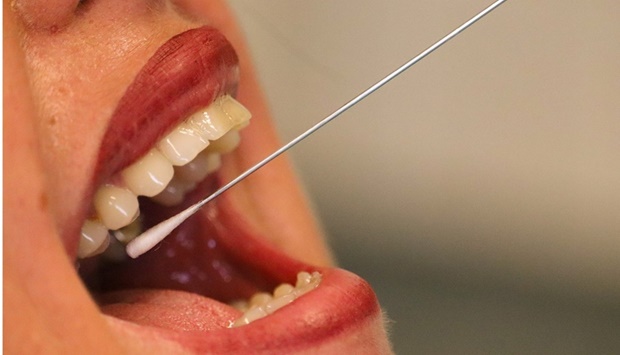The Chinese commercial hub of Shanghai is pushing ahead with a mass testing initiative as it tries to curb a new spike in Covid-19 infections, but some districts were easing lockdown rules in an effort to minimise disruptions.
The city, home to about 25mn people, saw symptomatic local community infections hit 57 on March 17, with another 203 domestically transmitted asymptomatic cases, up from eight and 150 respectively a day earlier.
Shanghai, which has up to now remained relatively unscathed by the coronavirus, has shut schools and launched a city-wide testing programme that has seen dozens of residential compounds sealed off for at least 48 hours.
China has been battling its worst Covid outbreak since the virus first emerged in Wuhan in 2020.
It reported 2,388 new local cases with confirmed symptoms on March 17, almost double the count a day earlier.
The outbreak is small by international standards and analysts have been debating how much China’s uncompromising “zero-Covid” response will hurt the economy at home and in the world at large.
President Xi Jinping signalled on Thursday that the “dynamic clearance” policy to contain the outbreak would not be ditched.
“Victory comes from perseverance,” Xi told a Politburo standing committee meeting while calling for more effective measures and efforts to minimise the economic impact, state media reported.
The Shanghai government, while stressing there would be no city-wide lockdown as in other cities, said it would test residents on a neighbourhood by neighbourhood basis, and order 48-hour lockdowns while they waited for their results.
There were some signs yesterday that it was easing up on its restrictions, with some compounds no longer required to go into a 48-hour lockdown while residents were tested.
The head of one residential committee in Changning district said her compound would not be sealed off this weekend as originally planned.
At least two other compounds also said testing would be postponed.
While officials said on Thursday that Shanghai has ramped up its testing capacity to 3mn per day and planned to increase it to 5.5mn in the near future, some districts also reported shortages of qualified testing personnel.
Some residents complained about the lack of clarity when it came to the rules.

(Representative photo) (Photo: Pixabay)
